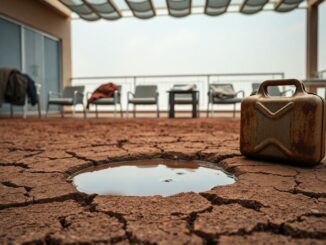A recent report highlights serious shortcomings in popular sunscreens, raising questions about their true effectiveness in protecting against skin cancer.

Topics covered
In a world where everyone seems obsessed with sun protection, it’s a bit unsettling to realize that not all sunscreens deliver on their promises. A recent study by the consumer advocacy group Which? tested 15 different sun creams from popular brands like Boots, Garnier, and Nivea.
The results were both surprising and concerning, leading us to a critical question: Are we putting our health at risk by trusting these products?
Examining the Numbers Behind Sunscreen Claims
Consumer confidence in sunscreen often hinges on flashy marketing and reassuring packaging.
But the data from Which? tells a different story. For instance, a supermarket brand priced at just £2.99 passed rigorous testing, while a popular £28 sunscreen, marketed as family-friendly, failed to meet industry standards. This glaring disparity begs the question: Are we really getting what we pay for?
The testing process was straightforward: a small amount of sunscreen was applied to volunteers’ skin, which was then exposed to UV light to measure how long it took for redness to appear.
Sunscreens are expected to provide a specific level of protection, indicated by their Sun Protection Factor (SPF). For example, a sunscreen with SPF 30 should theoretically allow users to stay in the sun 30 times longer without burning compared to being unprotected.
However, the findings revealed that some well-known brands didn’t even deliver a third of their claimed SPF. This is a serious issue because consumer trust can quickly erode when reputable products fall short of expectations. If these sunscreens can’t provide adequate UV protection, consumers may unwittingly put themselves at greater risk for skin cancer.
The Case Studies: Successes and Failures
A standout case in the study was the Ultrasun Family SPF30, marketed for sensitive skin, especially for children. Despite its hefty price tag and perceived reliability, it failed two separate tests. On the flip side, affordable options like Aldi’s Lacura Sensitive Sun Lotion SPF50+ not only passed the tests but also received accolades for effectively shielding against both UVA and UVB rays.
This scenario illustrates a broader lesson: price doesn’t always equate to quality. It’s easy to fall into the trap of believing that more expensive products are automatically better. I’ve seen too many startups fail because they relied on assumptions rather than data. The reality is that sometimes, the most reliable products come from unexpected sources. It’s crucial to scrutinize product claims and prioritize independent testing over brand loyalty.
Practical Lessons for Consumers and Founders
For consumers, the key takeaway is vigilance. Always seek out third-party testing results and be cautious of claims that sound too good to be true. Sunscreen should be a non-negotiable part of your skincare routine, but ensuring that the products you choose are genuinely effective is paramount.
For founders and product managers in the beauty and skincare space, this is a stark reminder: transparency and integrity in product claims are vital. Building a brand based on trust means not only delivering on promises but also ensuring rigorous testing and verification of products. The consequences of neglecting this responsibility can be dire, impacting both consumer health and brand reputation.
Actionable Takeaways
1. Research Before You Buy: Go beyond the marketing and look into third-party testing results for sun care products.
2. Evaluate Cost vs. Quality: Don’t assume that a higher price guarantees better performance; often, budget-friendly options can be just as effective or even better.
3. Trust but Verify: Choose brands that emphasize transparency and have a proven track record, especially when it comes to health-related products.
4. Stay Updated: The skincare and sun protection landscape is always evolving. Keep yourself informed about new studies and findings to make the best choices for your skin.




